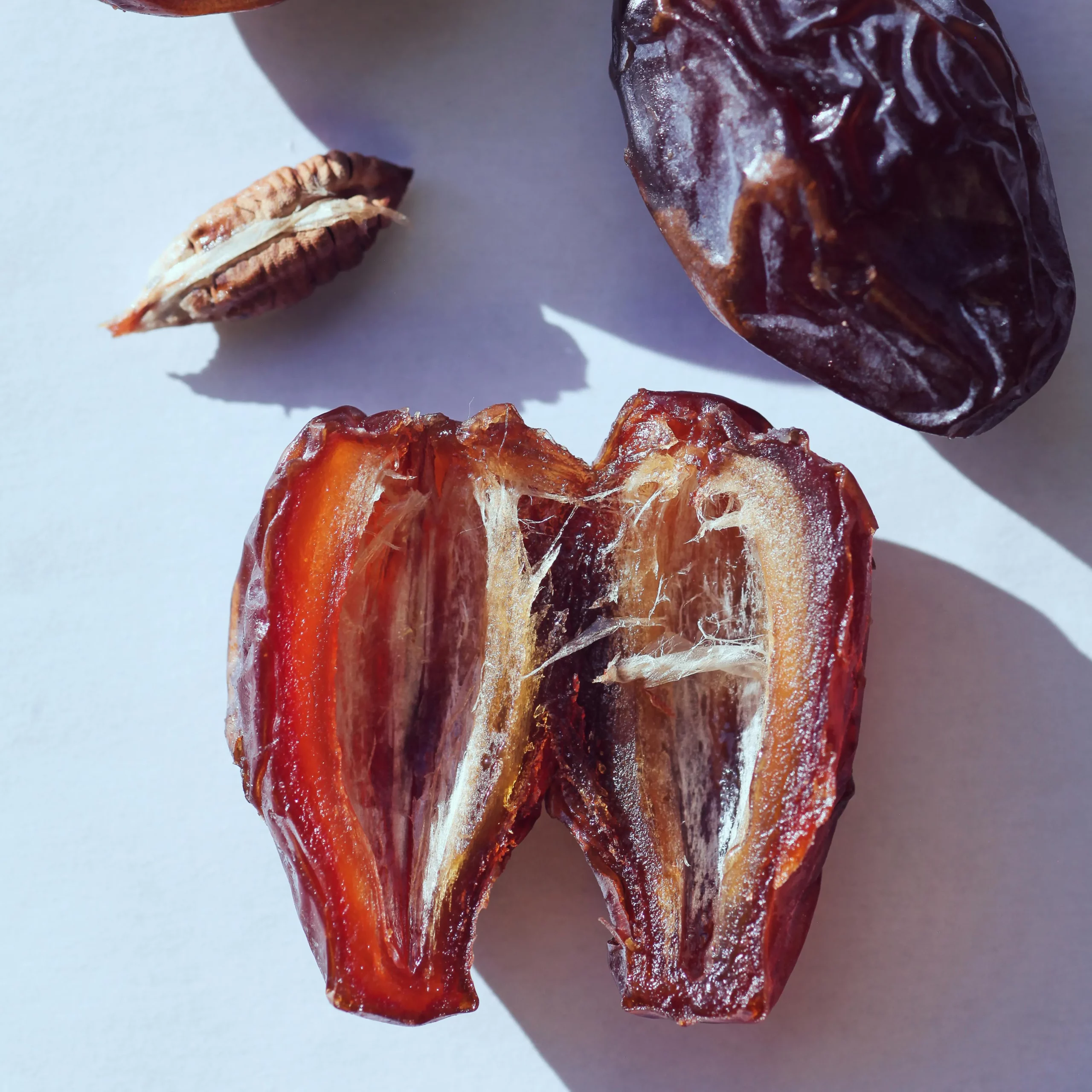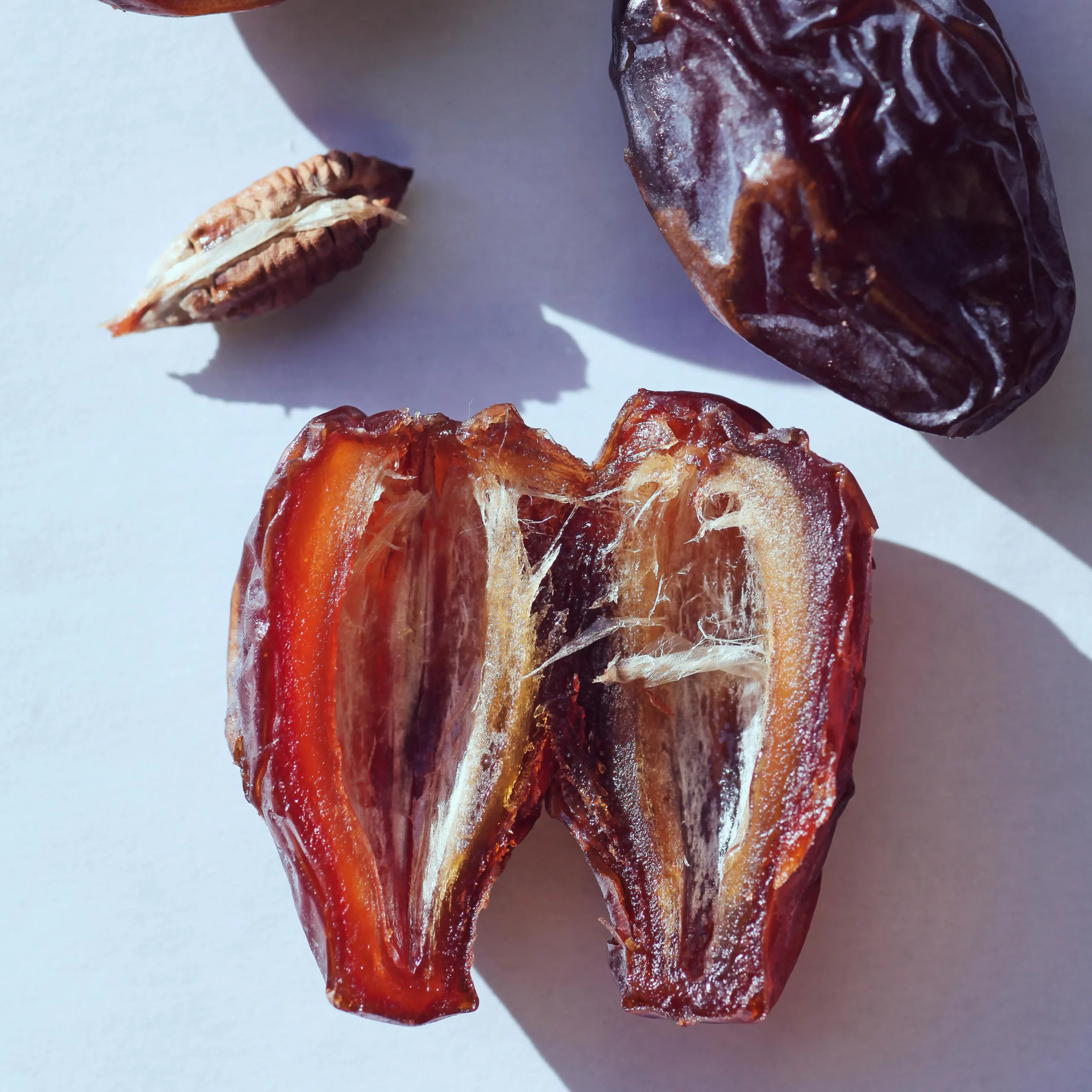
Dates are a nutrient-rich fruit, packed with fiber, essential vitamins, and minerals. Known for their natural sweetness, they are often used as a healthy alternative to refined sugar in various recipes. However, timing can play a crucial role in maximizing the health benefits you derive from eating dates. Here’s how to choose the right time to enjoy this delicious and nutritious fruit.
Morning Boost:
- Start Your Day: Eating dates in the morning can provide a quick source of energy due to their high natural sugar content. This makes them an excellent breakfast option, especially when paired with a protein source like nuts or yogurt, to balance the release of glucose and keep you energized throughout the morning.
Pre-Workout Snack:
- Energy Boost: Consuming a few dates before exercise can give you a burst of energy, thanks to their high carbohydrate content. The natural sugars in dates are easily digestible, providing a quick fuel source during workouts.
Post-Workout Recovery:
- Restore Energy Levels: After a workout, your body needs to replenish glycogen stores. Dates are effective in aiding quick recovery due to their sugar and potassium content, which help manage electrolyte balance and muscle recovery.
Midday Slump:
- Natural Sweetener: If you find yourself feeling sluggish in the afternoon, a few dates can be a healthier pick-me-up than coffee or processed snacks. Their fiber content also helps provide sustained energy without the crash often associated with high-sugar snacks.
Evening Use:
- Limit Nighttime Consumption: While dates are healthy, eating them late at night might not be ideal due to their sugar content, which could potentially disrupt sleep if consumed in large quantities. If you enjoy dates in the evening, try to do so at least a few hours before bedtime.
Regulating Digestion:
- Promote Digestive Health: Dates are rich in fiber, which is beneficial for digestive health. Eating them after meals can help promote digestion and prevent constipation. However, since they are high in calories, portion control is key.
Weight Management:
- Mindful Eating: Dates are calorie-dense, so it’s important to consider your overall caloric intake when incorporating them into your diet. A serving of about 2-4 dates is generally reasonable, depending on individual health goals.
Special Considerations:
- Diabetes Management: For those managing blood sugar levels, it’s crucial to account for the glycemic impact of dates. Pairing dates with a protein or fat can help mitigate rapid glucose spikes.
In conclusion, while dates are a healthy addition to your diet, timing their consumption can help you make the most of their nutritional benefits. Whether as part of a balanced breakfast, a pre-workout snack, or a midday treat, dates offer a versatile, nutritious option for any time of the day, provided they are eaten in moderation.




